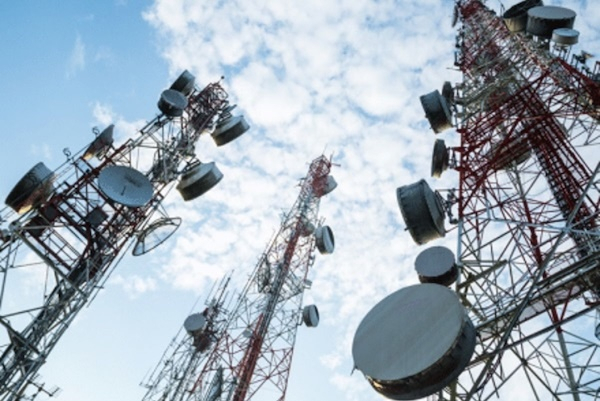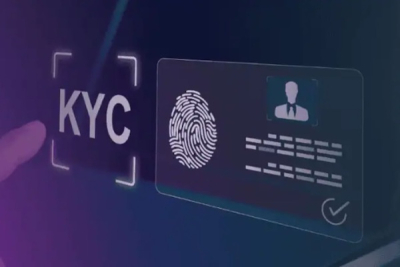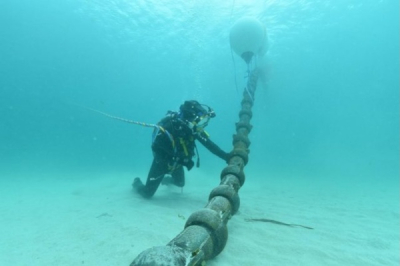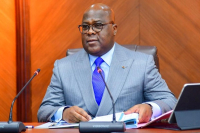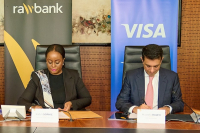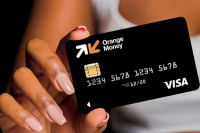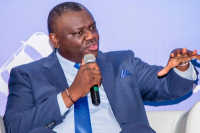
DIGITAL (56)
Mobile networks operated by Vodacom, Orange and Airtel were restored overnight between Feb. 16 and 17, 2026, in Nyiragongo, Rutshuru, Lubero, Masisi and Walikale in North Kivu after nearly a month of disruption, several sources said. Subscribers can now make calls, send messages and access the internet in those areas.
The restoration comes as pro-rebel media report that the de facto administration set up by AFC/M23 has in recent days sought to introduce a new telecom operator in areas under its control. The rebels had accused Kinshasa of being behind the prolonged outage.
Authorities have not yet commented on the exact causes of the disruptions, which lasted nearly a month. On Jan. 26, 2026, Vodacom Congo said its technical center in Goma had been broken into, leading to a loss of network supervision and control in the area.
For several months, Congolese authorities have warned about the deteriorating quality of telecommunications services nationwide. In mid-January, the Postal and Telecommunications Regulatory Authority of Congo, or ARPTC, attributed the disruptions to a fault on the WACS undersea cable and said repairs were scheduled for early February.
AFC/M23’s plan to bring in a new operator comes as the ARPTC accuses MTN Group of illegally providing mobile and internet services in the Democratic Republic of Congo, particularly in Goma and Rutshuru, without a license issued by Congolese authorities.
Local sources in central Rutshuru say equipment believed to belong to MTN Rwanda has been installed on antennas in the Murambi neighborhood, allowing the Rwandan network to extend coverage into part of Congolese territory.
This is not the first time MTN-linked operations have been reported in the area. In the early 2000s, when Goma and part of North Kivu were controlled by the Rwanda-backed Rally for Congolese Democracy (RCD-Goma), Rwandacell, now MTN Rwanda, is 80% owned by MTN Group, with the remaining 20% listed on the Rwandan stock exchange, operated in the region under the Supercell brand.
In an article published by MTN Group, Frans Joubert, then marketing director of Rwandacell, said: “I was the CEO of Supercell, and the technical platforms were almost entirely managed from Rwanda.” He said he ran the network for nearly two years.
Until August 2005, Supercell used Rwanda’s international dialing code, +250, before switching to +243, the DRC’s code.
Timothée Manoke
The Democratic Republic of Congo’s Universal Service Development Fund (FDSU) last week unveiled a 10-year strategy to narrow the digital divide. Covering 2026–2035, the plan is based on a shared infrastructure model aimed at extending network coverage to nearly 68 million people living in rural areas.
The strategy was presented on Thursday, Feb. 12, at the inaugural meeting of the sector coordination framework. The session brought together key public and private telecom stakeholders under the leadership of FDSU Director General Paterne Binene A Kadiat.
The roadmap outlines a shared infrastructure model dubbed “TowerCo Lead.” Under this framework, tower companies, known as TowerCos and acting as lead investors, finance and deploy passive infrastructure including towers, energy systems and backhaul on an open-access basis. Mobile network operators, or MNOs, then install active equipment at these sites to deliver services.
The Post and Telecommunications Regulatory Authority (ARPTC) is responsible for oversight, ensuring service quality and compliance with regulatory standards.
The FDSU plays a strategic and financial role, designing subsidy mechanisms and supervising their implementation. Subsidies are allocated by operating zone to consortia comprising TowerCos and MNOs. The country is divided into five operational zones.
Equalization
A cross-subsidization mechanism will allow revenue from profitable sites to offset losses in less viable zones, reducing dependence on public funding.
The initiative comes as infrastructure sharing gains momentum across Africa as a tool to reduce the digital divide. In the DRC, Orange and Vodacom plan to invest $179 million over four years through their joint venture Esengo Towers to deploy 1,000 telecom towers nationwide to expand mobile coverage. In August 2025, Vodacom Group and Airtel Africa also announced an agreement to share telecom infrastructure in several key markets, including the DRC.
According to the International Telecommunication Union (ITU), sharing mobile infrastructure can lower network deployment costs, particularly in rural or underserved markets. It can also support the rollout of new technologies and mobile broadband while strengthening competition when appropriate safeguards are in place.
In 2024, 2G, 3G and 4G networks covered 75%, 55% and 45% of the population, respectively, according to ITU data. The agency estimated mobile penetration at 44.3%, compared with 19.7% for internet use.
By the end of September 2025, the Congolese regulator reported mobile penetration of 65.3% and mobile internet penetration of 32.2% among a population of 112.2 million. Meanwhile, the GSMA estimated that 40 million people in the DRC were not connected to mobile internet in 2023.
Isaac K. Kassouwi, with Ecofin Agency
Premium Visa cardholders in the Democratic Republic of Congo saw a sharp increase in international travel spending and high-end retail purchases in December 2025, according to a Feb. 10, 2026 statement from Visa.
Data from the Visa Consulting & Analytics Retail Spend Monitor, based on a subset of VisaNet transactions and supplemented by estimates for other payment methods, showed that international travel spending by premium Visa cardholders rose more than 45% year-on-year during the holiday period from Dec. 1 to Dec. 31, 2025.
Spending in the DRC by international Visa cardholders, both premium and non-premium, also increased. Visitors from the United Arab Emirates, Zambia, the Czech Republic and Portugal were among the fastest-growing segments, with spending rising more than 75%.
Among Congolese premium Visa cardholders, international travel spending rose 45%. Spending on travel to destinations including France, China, Morocco and the United States increased by about 85%.
Luxury retail also recorded strong growth. Spending on clothing and jewelry abroad by premium Visa cardholders rose more than 55% during the holiday period.
Sophie Kafuti, Visa Cluster Head DRC, said the results reflect changing consumer behavior during the holidays. She said the company aims to support these trends by offering “secure, seamless and innovative payment solutions for consumers and businesses.”
In the DRC, Visa has expanded its local presence through partnerships with commercial banks and fintechs. In September 2025, it launched VisaPay, an application designed to facilitate digital payments for consumers and improve everyday payment transactions.
Ronsard Luabeya
Investigations to determine the causes of the recent deterioration in internet service quality are scheduled to begin on Feb. 3, 2026, DRC ’s Postal and Telecommunications Regulatory Authority (ARPTC) said in a statement released on Jan. 31.
The operations follow a major technical fault that affected the West Africa Cable System (WACS), an international subsea fibre-optic link, in January. The regulator said work will be carried out in Muanda, in the Democratic Republic of Congo, and in Pointe-Noire, in the Republic of Congo, with the aim of restoring internet services to normal.
ARPTC warned that the operations could lead to further temporary disruptions. It added, however, that the operators involved have implemented redundancy measures to reduce the impact on service continuity.
The regulator said it is closely monitoring the progress of the work and committed to keeping users informed in a timely manner of any steps that may be required depending on developments.
During a Council of Ministers meeting on Jan. 9, 2026, President Felix Tshisekedi instructed the relevant authorities to take the necessary measures to contain recurring disruptions affecting telecommunications networks and systems nationwide.
The malfunctions have affected mobile and fixed-line telephony, internet access, data transmission, digital services, network interconnection, as well as radio broadcasting and digital television.
The head of state also called for stronger regulation, oversight and permanent monitoring mechanisms for network and service quality. He further urged effective coordination between sector ministries, regulatory authorities and specialised technical services.
Ronsard Luabeya
Developing DRCPass, the national digital identification system for the Democratic Republic of Congo, requires $97.1 million in capital expenditure. These costs cover only the equipment, systems, infrastructure, and facilities needed for deployment, according to a Ministry of Planning document.
The project is structured as a public-private partnership signed in June 2025 between the Ministry of Posts, Telecommunications and New Information and Communication Technologies and the Singaporean company Trident Digital Tech Holdings Ltd. This agreement followed the validation of the proposal by the PPP Management Consulting and Coordination Unit (UC-PPP) a little over a month earlier. The deal makes Trident the exclusive provider of the country's electronic identification services (e-KYC), based on Web 3.0 technologies. The Ministry of Planning document indicates the partnership runs for a 20-year term.
At this stage, no communication from the government or Trident
There has been no communication from the government or Trident so far specifying whether the company must raise the full amount of funding for the partnership. In a press release issued on Sept. 16, 2025, Trident Digital Tech Holdings Ltd announced it had raised $2.6 million. The company said the funds would mainly support the expansion and commercialization of DRCPass in the DRC. Separately, President Félix Tshisekedi announced on Sept. 26, 2025, a $1 billion public investment under the National Digital Development Plan for the 2026-2030 period. This plan includes the rollout of a digital identity for citizens and residents.
The DRCPass system is built around four priority use cases. It is intended to enable biometric authentication for SIM cards linked to a blockchain-verified identity to reduce fake registrations and fraud risks. It will also provide easier access to e-government platforms and online services through a single identifier for all digital public services. For financial services, the system will integrate a one-click e-KYC solution with automated risk assessment and immediate access to credit services to strengthen financial inclusion. Finally, it will serve as a secure digital identity document for public and private transactions, as a complement to physical documents.
Timothée Manoke
Telecommunications networks in the Democratic Republic of Congo (DRC) have been disrupted for several days, according to the sector regulator.
In a statement on Wednesday, Jan. 14, the Regulatory Authority of the Post and Telecommunications of Congo (ARPTC) said the problems were caused by a major technical fault on the West Africa Cable System (WACS). The international undersea fibre-optic cable system links Europe to Africa and is affecting internet services in the country.
ARPTC said repair work was under way and that operators were working to restore services as quickly as possible. It added that it was coordinating with telecom operators to put in place measures to support subscribers, in line with the applicable provisions governing force majeure situations.
The incident has revived concerns about the robustness of the DRC’s digital infrastructure, even as authorities seek to use ICT as a driver of socio-economic development. WACS is one of the main international undersea systems used to provide access to the global internet and international connectivity.
The DRC also has access to the 2Africa cable. Its landing in Muanda was reported in September 2023, with commercial service expected to begin in late 2025.
The country also relies on regional terrestrial interconnections, including a fibre link reported via Lake Albert toward Uganda, according to industry media. It is therefore possible that the DRC is also experiencing knock-on effects from the internet shutdown in Uganda, imposed on the eve of the presidential and parliamentary elections being held on Jan. 15.
Infrastructure investment
On the investment front, authorities recently announced the signing of a $150 million partnership with the investment firm United Investment LMT (UIL), based in Mauritius. The deal was presented as a way to strengthen digital infrastructure.
Publicly available information highlights investments in connectivity and infrastructure. However, accessible sources do not yet provide consistent, detailed documentation confirming the effective installation of a new international undersea cable as part of the initiative.
The episode also recalls vulnerabilities exposed during major outages affecting several undersea cables in March 2024, which caused significant disruptions across multiple African countries. At the time, analysts and industry players regularly pointed to diversification of cable routes and the use of satellite solutions among the options to improve resilience.
Satellite resilience
Satellite connectivity is one of the options frequently cited in this context. The Global System for Mobile Communications Association (GSMA), for example, has highlighted satellite services as a complement to terrestrial networks and a potential lever to strengthen resilience.
Zimbabwe, a landlocked country with no direct access to a cable landing point, has said it is exploring partnerships with Low Earth Orbit (LEO) connectivity providers, according to public announcements relayed by local and international media. The DRC is also pursuing a telecommunications satellite project, which authorities have framed as part of a broader push for sovereignty and improved connectivity.
ARPTC’s statement follows instructions from President Felix Tshisekedi, who asked the relevant authorities to take measures to end recurring disruptions affecting telecommunications networks and systems nationwide. This included the possibility of sanctions against operators deemed to be failing to meet their obligations.
Isaac K. Kassouwi, with Ecofin Agency
Mobile operators in the Democratic Republic of Congo (DRC) face possible sanctions for failing to meet service-quality standards, authorities said.
At a cabinet meeting on Jan. 9, 2026, President Felix Tshisekedi instructed telecommunications regulators to take action to curb recurring disruptions affecting networks and systems nationwide.
The president ordered the strict enforcement of penalties предусмотрed by law against any operator found in breach of obligations relating to service quality, continuity, coverage, or consumer protection. He also called for stronger regulatory oversight, enhanced controls, and continuous monitoring of network and service performance, alongside improved coordination between line ministries, regulators, and technical agencies. A detailed report is due within 30 days.
The disruptions affect mobile and fixed telephony, internet access, data transmission, digital services, network interconnection, and radio and digital television broadcasting.
“These persistent failures seriously disrupt citizens’ daily lives, government operations, and the functioning of the national economy, leading to communication breakdowns, interruptions in banking and commercial transactions, and a marked deterioration in radio and digital television services,” the cabinet statement said.
In late December, Posts, Telecommunications and Digital Affairs Minister Jose Mpanda Kabangu called out operators Orange, Airtel, and Vodacom following user complaints over unstable networks, dropped calls, and limited internet access in Sankuru province.
Earlier, in September, shortly after taking office, the minister highlighted nationwide malfunctions, including frequent outages, network congestion, unjustified airtime deductions, and failed mobile money transactions that were nonetheless billed. Consumers regularly raise these issues on social media.
Pressure on telecom operators comes as Congolese authorities seek to position the digital sector as a key driver of socio-economic development. Officials say reliable, high-performance, resilient, and continuous networks are essential in a competitive environment that ensures fair territorial coverage and strong consumer protection.
Such infrastructure is also critical to support access to digital public services rolled out by the government.
The sanctions under consideration have not yet been specified. However, the 2020 telecommunications and ICT law provides that any breach of license conditions or associated specifications not warranting suspension or withdrawal may be punished by a fine of up to one-quarter of the license value.
Isaac K. Kassouwi
Rawbank, the largest bank in the Democratic Republic of Congo, and global payments company Visa on Dec. 16 renewed their partnership for a further five years, the two groups said in a joint statement issued in Kinshasa.
The agreement marks a new phase in a collaboration that began more than 15 years ago. Under the renewed partnership, the two companies plan to expand payment and financial management solutions for small and medium-sized enterprises, including expense management tools designed to improve SMEs’ financial management. The agreement also covers the rollout of tailored products for affluent clients and the expansion of cross-border payment solutions to support international trade.
On the merchant side, Rawbank and Visa plan to broaden payment acceptance options, including physical point-of-sale terminals, online payment solutions and remote payment tools. The move is aimed at supporting the growth of e-commerce and strengthening transaction security.
The partners also plan to launch companion cards and virtual cards in collaboration with telecommunications operators, to meet growing mobile usage and offer greater flexibility to individuals and businesses.
In addition, the two companies announced joint initiatives to promote financial inclusion, including the Visa Academia Card and future programmes targeting young people, women and entrepreneurs. These initiatives will focus on financial education and improving access to formal banking services.
Rawbank also plans to promote payment tokenization in the DRC, a technology designed to enhance transaction security and encourage the adoption of innovative digital payment solutions. The bank said the initiative reflects a shared objective to strengthen trust in digital payments and support the transition toward a more connected economy.
Mustafa Rawji, chief executive officer of Rawbank, said the partnership aims to broaden the range of modern and secure payment solutions tailored to the needs of Congolese consumers and businesses.
Sophie Kafuti, Visa’s country manager for the DRC, said the agreement seeks to support the modernization of payment acceptance, the expansion of e-commerce and the rollout of mobile solutions, with the goal of widening access to digital financial services and strengthening financial inclusion.
Ronsard Luabeya
Orange Money Group plans to roll out virtual Visa cards across Africa and the Middle East, including the Democratic Republic of Congo (DRC). In a joint statement, Orange and Visa, a global leader in digital payments, said they had signed an agreement to support the expansion.
The virtual Visa card will be accessible via the Maxit application, which currently has 45 million active customers. Users will be able to instantly generate a rechargeable card from their Orange Money account, usable for online payments on local and international websites. A physical version of the card is also planned and will be made available later at authorized Orange Money points of sale.
In the DRC, Orange Money had already launched an Orange Money Visa card in June 2021 in partnership with UBA. Linked to the Orange Money account, it allowed funds to move between the card and the user’s mobile wallet. It remains unclear whether the initiative gained traction, but the current project builds on similar rollouts in Botswana, Madagascar, Jordan, and Ivory Coast. The goal is to “provide millions of users with a simple, secure, and internationally recognized payment solution.”
According to Thierry Millet, CEO of Orange Money Group, the launch of virtual cards for international payments marks the first phase of a broader agreement designed to expand Orange Money’s acceptance on e-commerce platforms and at local merchants.
The partnership comes as Visa strengthens its presence in the DRC through several collaborations with local banks and fintech companies. Last September, Visa signed an agreement with Onafriq, a pan-African digital payments network, to interconnect VisaPay with the country’s main mobile money wallets, including M-Pesa, Airtel Money, and Orange Money. The interoperability enables Visa accounts to be funded directly from mobile money wallets and facilitates electronic payments.
In the DRC, the value of digital transactions is expected to reach $3.85 billion in 2025, driven by an estimated average annual growth rate of 19%, according to the GSMA. Visa aims to capture part of this growth through the gradual rollout of its solutions, including the VisaPay application launched last September.
The Congolese mobile money market continues to grow strongly. According to data from the Regulatory Authority for Post and Telecommunications of Congo (ARPTC), Orange Money accounted for 6.611 million active accounts in the second quarter, out of a total of 31.16 million, representing a 19.3% increase from the previous quarter. The operator held a 21.22% market share, behind Vodacom’s M-Pesa (49.37%), Airtel Money (29.26%), and Africell (0.15%).
Ronsard Luabeya
The Democratic Republic of Congo plans to tighten oversight of major digital platforms operating in the country, Digital Economy Minister Augustin Kibassa said on Tuesday.
Speaking at the Africa Digital Innovation Summit (ADIS 2025) in Kinshasa, Kibassa cited Facebook, Twitter and TikTok among the companies that, he said, operate in the DRC with little supervision while earning substantial revenue from the local market.
Kibassa said talks are advancing, with several options under review, including a regional approach involving neighboring states. He said he also wants to work through African coalitions to strengthen countries’ bargaining power with global digital firms. The minister said he has already begun discussions with the Smart Africa alliance, though progress remains limited for now.
“They operate here and profit heavily from our market. That weakens our economy. I believe it is in their interest to listen to us,” he said.
Kibassa also called for tighter rules on the content carried by these platforms. He pointed to TikTok, saying its content is more tightly controlled and education-oriented in China, unlike what is accessible in the DRC. He said a stronger framework, backed by penalties, is needed to curb abuses seen on social networks. He added he plans to work with the communication ministry to reinforce the national system for regulating digital content and services.
The steps taken by Kinshasa mirror a broader global push to rein in digital giants. In Europe, the European Union and several member states have stepped up efforts in recent years to regulate large online platforms. The EU’s Digital Services Act, in force since August 2023 and applicable to all digital services from February 2024, aims to improve consumer protection and tighten oversight of platform practices.
Ronsard Luabeya
More...
Singapore-based Embed Financial Group Holdings (EFGH) said on Nov. 20 it signed a master services agreement with the Water Distribution Authority (REGIDESO SA) to accelerate the utility’s digital transformation, including modernizing how it collects payments from households and businesses.
According to the statement, REGIDESO and EFGH will jointly develop secure digital channels for bill payments, security features and new financial tools designed to simplify and speed up payments and make them more accessible. The initiative aims to improve payment tracking, enhance transparency, strengthen investor confidence and help REGIDESO raise capital to finance its modernization.
REGIDESO already offers digital payment services. Information on its website shows that customers can pay bills through a mobile app available on the App Store and Google Play or via its website. These services currently cover 11 of the DRC’s 26 provinces. For customers without internet access, a USSD code is also available.
EFGH describes itself as a specialist in digital payments, financial platforms and digital ecosystems. The company said it operates in several African markets, including Ghana, where on Oct. 29 it announced a joint venture with the District Assemblies Common Fund (DACF). That partnership aims to build a “Finternet,” a digital financial infrastructure designed to connect governments, residents and businesses. According to EFGH, this Finternet will link payments, credit and insurance the way the internet links information, helping Ghanaian districts manage funds and public services more effectively while creating new revenue streams.
Timothée Manoke
Visa has reiterated its intention to partner with the Democratic Republic of Congo's central bank (BCC) to modernize the country's financial system. In a letter dated November 20, 2025, Visa's Senior Vice President for Central and West Africa, Aminata Kane, informed BCC Governor André Wameso of the commitment on behalf of Visa President Oliver Jenkyn.
According to a note from the BCC, the cooperation will focus on three areas. The first is the creation of the BCC's Financial Innovation Center, intended to position the DRC as a francophone technological and regulatory hub for digital payments, market financial infrastructure, and fintech solutions.
The second area involves strengthening financial inclusion through programs targeting universities and the public administration to accelerate the adoption of modern, secure payment methods. Finally, Visa plans to support investment in Congolese fintechs, particularly those developing digital solutions for financial inclusion.
The two institutions have agreed to set up joint technical teams to finalize an operational roadmap in the coming days. The move follows discussions held on the sidelines of the IMF and World Bank Annual Meetings in October.
The mobile payments market in the DRC is experiencing steady growth. According to the GSMA, the value of transactions is expected to reach $3.85 billion in 2025, representing a compound annual growth rate of about 19%.
In September, Visa launched VisaPay, an application that allows consumers to make digital payments easily. At the same time, Visa partnered with Onafriq, a pan-African digital payment network, to connect VisaPay with the country's leading mobile money wallets, including M-Pesa, Airtel Money, and Orange Money. This interoperability allows users to fund a Visa account directly from a mobile money platform.
Ronsard Luabeya
- Digital economy minister visited Huawei’s training center in Hangzhou
- Talks focused on creating a Congolese AI academy under the 2026–2030 plan
- Huawei is considered a technical partner due to its global ICT training expertise
Digital Economy Minister Augustin Kibassa Maliba carried out a working visit on November 10, 2025, to Huawei’s training center in Hangzhou, in the People’s Republic of China, according to a statement from the ministry’s press office.
The mission focused on cooperation between the Democratic Republic of Congo (DRC) and Huawei in artificial intelligence (AI) training, as part of the National Digital Plan 2026–2030 and the country’s first National Artificial Intelligence Strategy.
Discussions centered on the creation of a Congolese artificial intelligence academy, a government project designed to train specialists, support applied research, and develop solutions tailored to local needs, especially in agriculture, health, and mining.
According to the official communication, Huawei was approached as a technical partner for the project due to its global experience in information and communication technology training, including through the Huawei ICT Competition, an international event that brought together more than 210,000 students and instructors in its latest edition.
This development follows the memorandum of understanding signed on May 23, 2025, between the DRC and Huawei on the “smart village” pilot project, aimed at improving Internet access, connecting local public services, and training young people in digital skills.
-
The Democratic Republic of Congo (DRC) Minister of Digital Economy, Augustin Kibassa Maliba, met with Alibaba Group and Isoftstone Corporate officials in China.
-
The discussions focused on adapting the Chinese e-commerce model for implementation in the DRC.
-
The parties agreed to create a joint working group to formulate concrete proposals for e-commerce development.
The Democratic Republic of Congo (DRC) Minister of Digital Economy, Augustin Kibassa Maliba, met with executives from Alibaba Group and Isoftstone Corporate, two major players in the digital sector. The meeting occurred on the sidelines of the Sino-African Forum on Economic, Trade, and Cultural Cooperation, held on November 7, 2025, in Jinhua, China.
The Ministry of Digital Economy reported the exchanges focused on the Chinese e-commerce model and its potential adaptation in the DRC. Participants addressed several key subjects, including regulation, technology, and establishing an effective digital ecosystem.
Consequently, the parties agreed to establish a joint working group. This group holds the mandate of deepening the reflection and formulating concrete proposals for e-commerce development in the DRC. The Ministry specified technical meetings will occur in the coming days. These meetings aim to finalize a strategic report for Minister Kibassa. This document will serve as the foundation for implementing a simplified and accessible national e-commerce model, particularly benefiting young Congolese entrepreneurs.
Alibaba Group, which Jack Ma founded in 1999, reaffirmed its interest in the African market. The Chinese giant considers the DRC a strategic hub for expanding its activities across the continent. Alibaba operates across online commerce, cloud computing, digital finance, logistics, and entertainment. The company utilizes platforms such as Alibaba.com, Taobao, Tmall, AliExpress, and Alipay, forming an integrated ecosystem connecting merchants, consumers, and service providers.
Founded in 2001, Isoftstone Group specializes in information technologies and digital transformation. The company provides solutions in artificial intelligence, cloud computing, big data, and smart cities. Isoftstone targets governments and companies operating in the telecommunications, energy, transport, finance, and health sectors.
This article was initially published in French by Ronsard Luabeya
Adapted in English by Ange Jason Quenum






